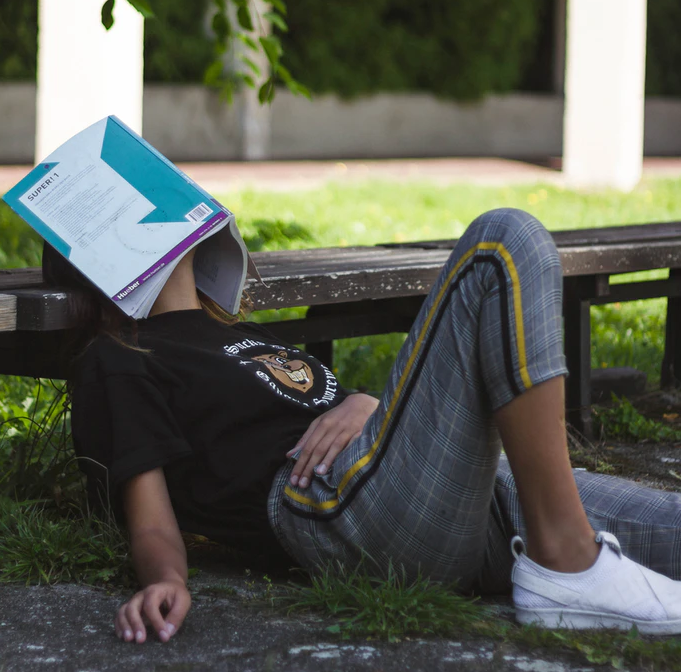This post is also available in Dutch.
You’ve just had a nice lunch and want to get back to work, but before you can really start you get very tired. What causes this? And how do you prevent such a ‘food coma’?
Your body enters a resting state
The after-dinner dip is a state of drowsiness that arises after a meal. The moment you eat something – be it in the morning, the afternoon or at night – the part of your nervous system that regulates your digestive system is activated. Known as the parasympathetic system, this system is involved in energy conservation and resting. Among other things, it puts your stomach and bowels to work. The opposing sympathetic system, which is activated when you’re stressed or physically active, fades into the background.
This resting system is also the cause of your energy dip. When this system is activated, your body enters its resting state and more blood flows to your digestive system, meaning less blood flows to your brain. Digesting food costs a lot of energy and that requires oxygen-rich blood. Your drowsiness presumably occurs because your brain receives less (oxygen-rich) blood. You can even see this in your brain activity: during the dip there’s an increase in brain waves that are associated with resting and sleep.
But why don’t we have a dip after breakfast?
But there’s more! Why do you experience this dip more often after lunch than after breakfast? First of all, the size of the meal plays a role. The intensity of the dip appears to depend on the number of kilocalories in the meal. This effect increases when you’ve also had a poor night’s sleep, perhaps because you will eat more food and more calorie-rich food when you’re tired. So, because people often eat more during lunch, the dip is more intense after lunch.
A second cause of the more intense after-lunch dip has to do with the so-called circadian rhythm: the human sleep-wake cycle. Just like other animals, people have an internal biological clock that ensures we wake up in the morning and want to sleep in the evening. But this circadian rhythm consists of more than these two time points. Apparently, at the start of the afternoon – coincidentally, during lunch – there is a decrease in our alertness. When this moment overlaps with the after-lunch dip, you will be even more tired!
How do you stay awake?
Fortunately, there are some things you can do to prevent or to minimise your dip in the afternoon. First, you can eat less; smaller snacks cause less drowsiness. Moreover, it’s beneficial to eat earlier, so that your digestion does not coincide with the low-energy stage of your circadian rhythm. Other tips to minimise the dip are to look into a lamp with blue light, drink coffee, have a powernap, or take a walk. Physical activity activates your sympathetic system which makes you feel more awake. This way, you can make sure you’re productive even in the afternoon!
Original language: Dutch
Author: Felix Klaassen
Buddy: Floortje Bouwkamp
Editor: Marlijn ter Bekke
Translation: Wessel Hieselaar
Editor translation: Rebecca Calcott
